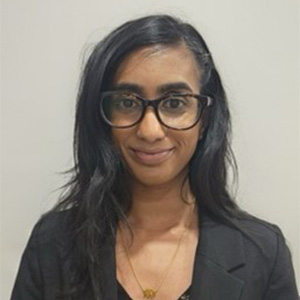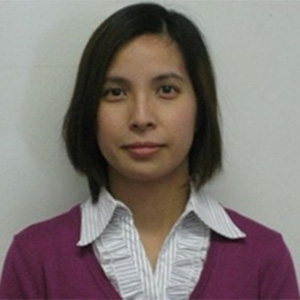Four Successful Candidates in the CIHR Research Excellence, Diversity, and Independence - Early Career Transition Award Competition
The CIHR Research, Excellence, Diversity and Independence grants represent a significant investment in projects that have the potential to reshape our understanding of aging, cognitive health, and caregiver support. They also provide mentorship for underrepresented groups of researchers.
Learn more about the four recipients of the Brain Health and Cognitive Impairment pool funded in partnership with the Institute of Aging and its partners:

Andrea Jones
Award funders: CIHR Institute of Aging (IA), Azrieli Foundation
Project: Brain-mind-environment: Harnessing complexity to address brain health inequity
Andrea is concurrently a Neurology Resident Physician and Postdoctoral Fellow at University of British Columbia (UBC) (Supervisor Dr. Thalia Field). She completed her PhD in the UBC Department of Psychiatry (Supervisor Dr. Bill Honer). Her researcher aims to advance brain health equity by examining the complex interplay of life-course social determinants and clinical factors contributing to brain health disparities, and to develop and implement high-yield interventions to improve outcomes for vulnerable populations. Andrea is pursuing a multifaceted career as a physician-scientist in Neurology to advance the prevention and management of neurological conditions, particularly among historically, socially, and economically marginalized communities.

Dr. Ibukun Akinrinade
Award funders: CIHR, Azrieli Foundation
Project: Oxytocinergic regulation of bi-directional social contagion and social buffering during stress recall
Dr. Ibukun Akinrinade is a post-doctoral researcher at the Bains lab at the University of Calgary. She earned a master's degree with distinction in Anatomy from the University of Ilorin, Nigeria. In 2020, she completed a PhD in Integrative Biology and Biomedicine, specializing in neuroscience. Her thesis title was "Oxytocinergic Regulation of Social Information Use in Threat Perception in Zebrafish." Her research seeks to understand the underlying mechanisms of stress regulation and the impact of social presence on behavioural outcomes. She aims to understand how stressors and social support interact to impact an individual's well-being. She is dedicated to open science and mentoring the next generation of scientists, having organized and participated in hands-on training workshops in Africa. She is also actively involved in science communication.

Dr. Myuri Ruthirakuhan
Award funders: CIHR, CIHR Institute of Aging (IA), Bright Focus Foundation
Project: Dementia risk mitigation in individuals with cardiovascular disease
Dr. Ruthirakuhan completed her PhD in Clinical Pharmacology at the University of Toronto. She is currently a post-doctoral researcher in the Hurvitz Brain Sciences Research Program at Sunnybrook Research Institute (Toronto, ON), investigating how cardiovascular comorbidities and its underlying biology impacts dementia risk. Her research interests include biomarker discovery, biomarker informed clinical trials, and therapies aimed at targeting underlying risk factors to mitigate the risk of dementia. Dr. Ruthirakuhan's research contributions have been recognized nationally (ASRP, CIHR), and internationally (ADDF, Alzheimer's Association). Since the start of her PhD she has published on a variety of topics related neurodegeneration, including: clinical trials, biomarker investigation, structural equation modelling, neuropsychiatric symptoms of dementia, and vascular disease. In addition to her research, she teaches a comprehensive workshop she co-designed entitled "Biomarkers of Neurodegeneration", that has been attended globally by trainees and research staff.

Dr. Victrine W Tseung
Award funders: Alzheimer Society of Canada, Azrieli Foundation
Project: Cardiovascular disease, multimorbidity and occupational engagement
Dr. Tseung is an emerging leader in occupational engagement in cardiovascular disease and multimorbidity. She obtained her Masters in Occupational Therapy and PhD in Rehabilitation Science from the University of Toronto. Through her academic training and clinical research experience, she has substantive expertise in qualitative research methods, quantitative prediction modeling and knowledge translation that allow her to conduct high-impact research that can influence clinical care and optimize the patient and family experience. Her doctoral research was the first study to examine the barriers and facilitators to implementing caregiver programs in a regional stroke system in Canada. She recently completed her Health System Impact Fellowship, which included leading evaluations of digital initiatives aimed at supporting the recovery and quality of life of individuals with heart and/or stroke-related conditions and their families and developing population-based, sex-specific multimorbidity prediction models for self-care and quality of life in individuals with heart failure.
We look forward to the groundbreaking discoveries and positive impacts that will undoubtedly emerge from these initiatives. Follow this link for more information about the REDI recipients.
Congratulations REDI recipients!
- Date modified: